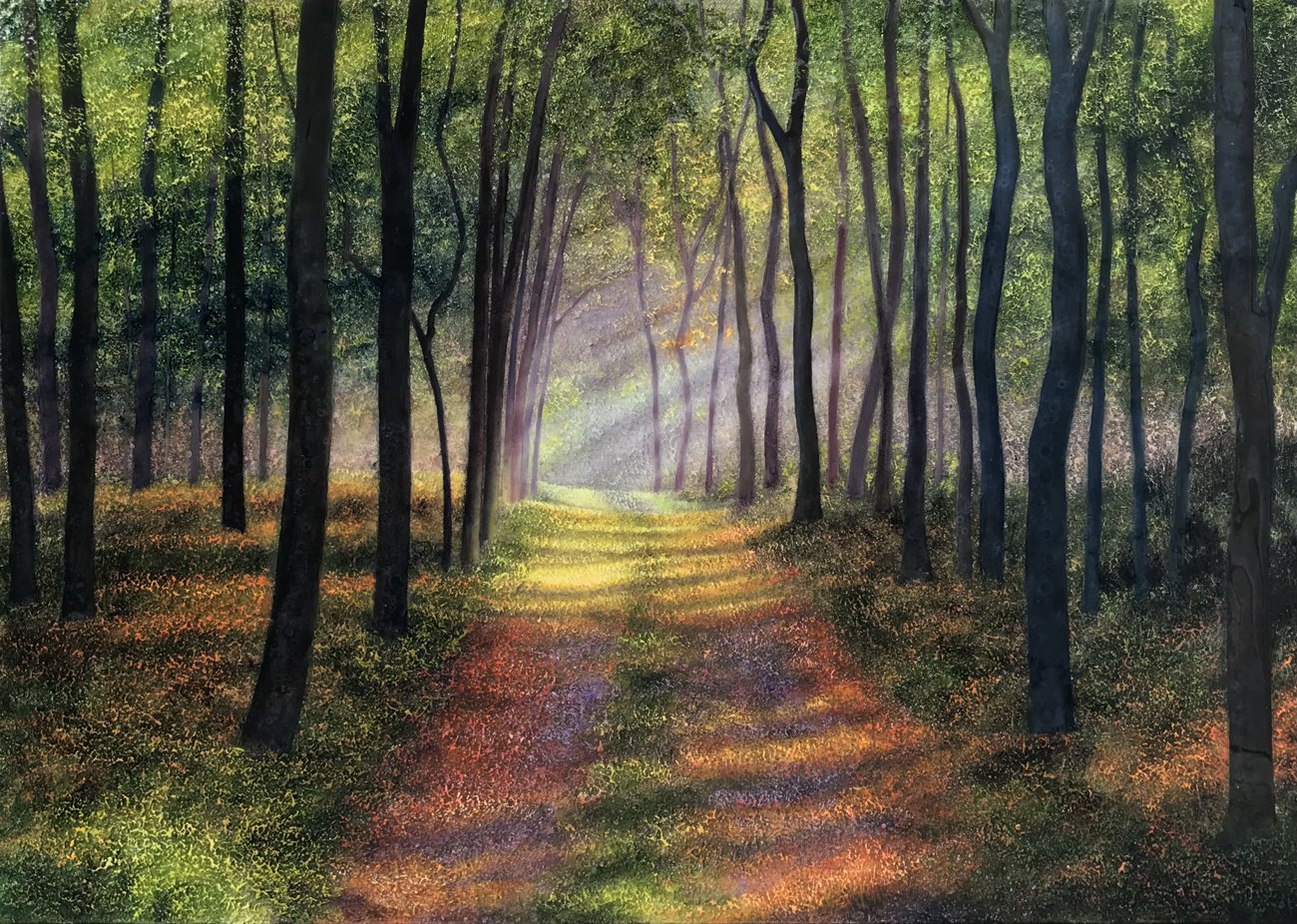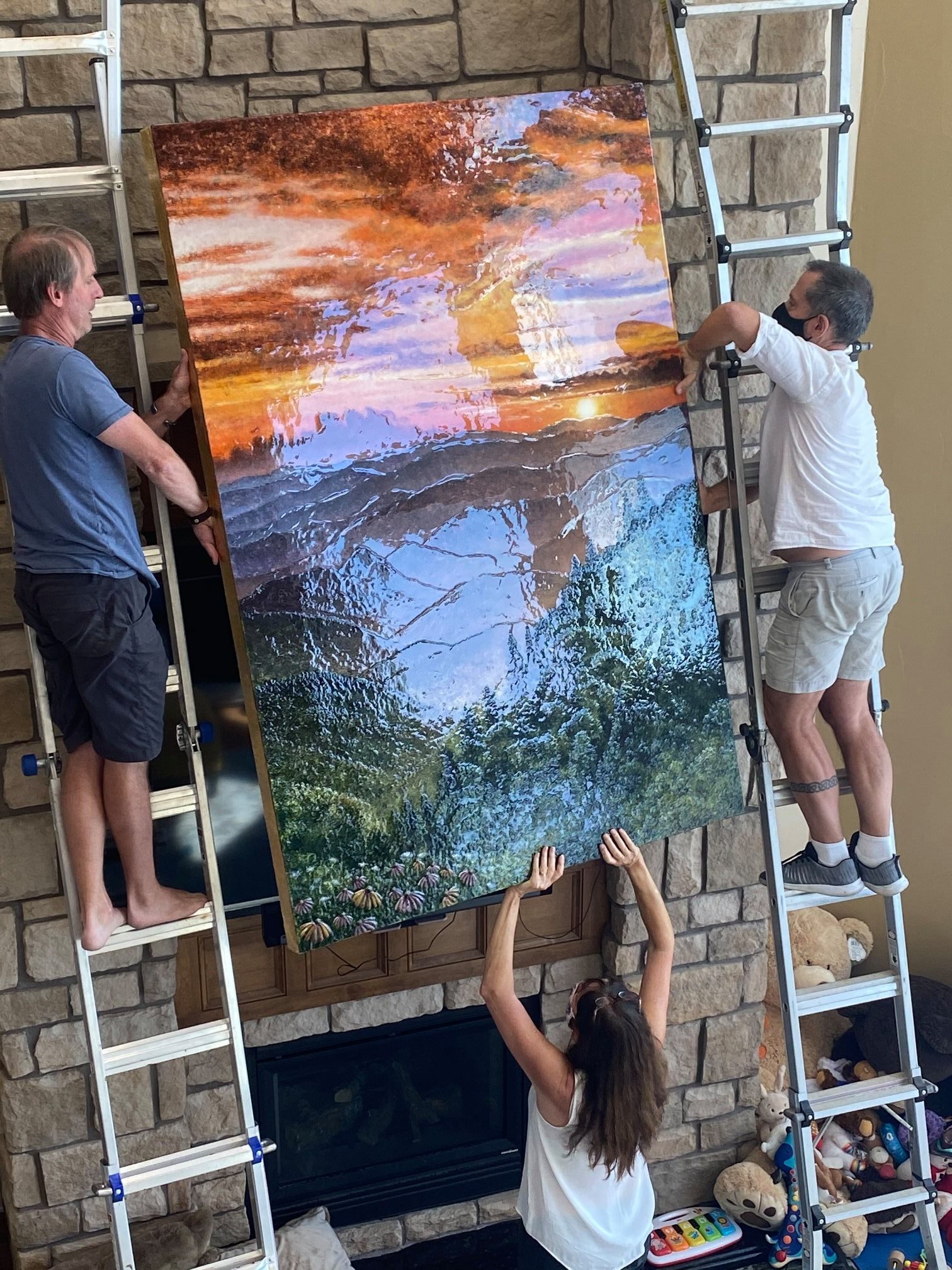Beauty or just a big mess?
First off, I love creating art. I pour my whole heart and soul into every single painting I create, and so I have a whole lot of me invested in my work. Most artists I know understand exactly what I’m talking about. Creating art is risky. See, if people love what you create, it feels amazing. If people don’t love what you create, it can be completely devastating. So I say that creating art is risky because with every piece you create, you’re basically putting your soul out there for the whole world to judge.
Or not.
That last sentence describes my way of looking at my own art abilities when I was a grade schooler. I was always the best artist in each of my classes growing up and since I was NOT the top of my class when it came to team sports or academics, I made my artistic abilities my key to feeling accepted by my classmates. That scheme worked great until high school. In tenth grade, I realized that I was no longer the “best artist” in my grade and I kind of fell apart. By my late teens, I realized I was just using art as a tool to get what I really wanted: to feel like I deserved to be here, earning my right to breathe, and I have learned that no ability I could possibly have can give me that kind of inner-soul validation. That’s got to come from somewhere else. Art cannot bear that kind of weight.
And so, over time, I have learned that my art abilities were just given to me to enjoy. That’s it. They are my key to fun. They are not my key to feeling acceptable as a human. And when that weight is taken off of art, creativity can just be enjoyed, so nothing is on the line. If people like my artwork, I’m happy. I like it, and I’m glad when someone else does too. If someone doesn’t like it, that’s got to be okay. Nothing is on the line. So when someone critiques my work, I really try to take a deep breath and listen. Over and over again, I have been able to glean something from every critical comment. Every artist has got to be okay with the idea that they are not perfect; that they make mistakes and that they are still growing. The most difficult people I’ve ever been around are those that are convinced that they never make mistakes. The other group of people that are really difficult to be around are those that think they SHOULD NEVER make mistakes and when they do, they nose dive into depression. Both types of people are arrogant…two sides of the same coin. I don’t want to be like that.
“I have learned that my art abilities were just given to me to enjoy. That’s it.”
The man I want to be informs the artist I want to be. My faith tells me that my Creator loves me and approves of me. That faith says that one day I will stand before him. Him. Only him. That faith teaches me that I am forgiven and loved and approved by him already. And if that is true, then there doesn’t exist anyone whose critique or disapproval can undo the approval my creator promises me I already have.
Honestly, that’s what I remind myself every time I receive a critique. Nothing is on the line. And in every critique, if I listen, there may just be an element or two of wisdom and I can use that wisdom to improve my craft. And because I love my craft, I want it to be constantly improving. Critiques are just part of that.













